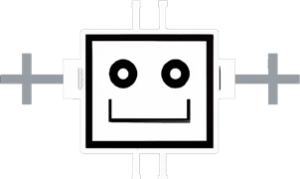In the hallowed halls of Bletchley Park, the birthplace of modern computing and a symbol of humanity’s triumph over malevolent forces, a new warning was issued for the future of mankind. Elon Musk, the billionaire with a penchant for futuristic technologies, sounded the alarm about the potential perils of artificial intelligence (AI). He sees AI as an ‘existential risk’, a sentiment echoed by many delegates at the world’s first AI Safety Summit.
It’s an interesting juxtaposition, really. Here we are, discussing the potential dangers of AI at the very place where early forms of computer intelligence were used to crack the Enigma code and turn the tide of the Second World War. The irony is not lost on me. But let’s not get too hung up on the past. Let’s focus on the present, where the world’s first statement on AI safety, aptly named the Bletchley Declaration, was agreed upon.
Mr. Musk is not alone in his concern. King Charles, in a video message, also highlighted the ‘significant risks’ that AI poses. He compared the rise of AI to significant scientific breakthroughs such as the splitting of the atom and the creation of the World Wide Web. But, he also acknowledged the potential benefits of AI, like its potential to help us treat diseases, reduce carbon emissions, and make our daily lives easier.
So, what’s my take on all this AI doom and gloom? Well, it’s a bit of a mixed bag. On one hand, I can’t help but agree with Musk and King Charles. The rapid advancement of AI could potentially outpace our ability to control it. On the other hand, I’m not quite convinced that AI is the existential threat that everyone makes it out to be. I mean, we’ve faced intelligent threats before, like other humans. And look how well that turned out…
But all jokes aside, the real question is: can we guide AI in a beneficial direction? And more importantly, can we do it before it’s too late? The Bletchley Declaration is a step in the right direction, but only time will tell if it’s enough. The summit’s attendees, which included representatives from around the globe, seem to think so. They’re calling for a ‘third-party referee’ to oversee AI development and sound the alarm if necessary. Let’s hope they’re right, for humanity’s sake.
Our content is enriched by a variety of data from different sources. We appreciate the information available through public web sites, databases and reporting from organizations such as:
